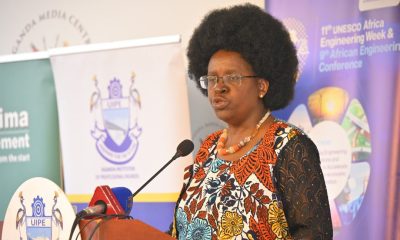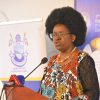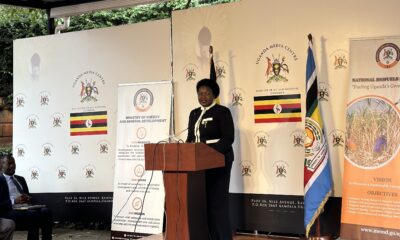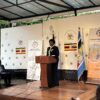News
Farmers leaders push for strategic ties with researchers
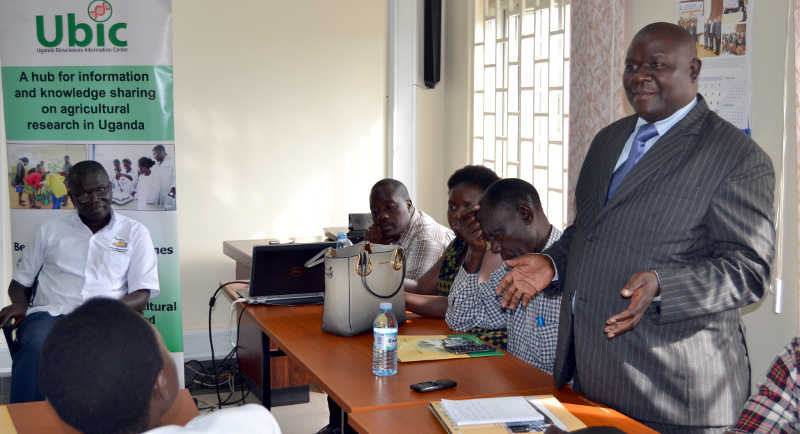
UNFFE General Secretary Mugoya Awali Ogonzaki said he will strongly support scientists to push for the passing of a law to regulate use of GMO
When Arthur Makara, the Executive Director of Science Foundation for Livelihoods and Development (SCIFODE) introduced himself at a recent event as a go-between for an imminent marriage between farmers leaders and scientists, some of us initially took it for a light joke.
But when Dr. Dick Kamuganga, the President of Uganda National Farmers Federation (UNFFE) stood up to address a sensitization meeting for UNFFE National Executive Committee members on modern agriculture biotechnology, I realised the proposal was not only serious, it could fundamentally change the sector, especially regarding the way technologies reach farmers but also how policy makers/scientists respond to farmers’ challenges.
The sensitization meeting held at the Uganda Bio-Sciences Training Centre at Namulonge had been organised to educate UNFFE NEC members on the importance of adopting new modern bio-technologies to counter binding constraints to Uganda’s farmers. But as it turned out, it became an important ice-breaker between the researchers and farmers leaders and a convenient moment to prepare the ground for a more longer-term and closer relationship guided by a Memorandum of Understanding.
Dr. Kamuganga outlined three areas in which UNFFE is seeking to build closer ties with Uganda’s agricultural researchers. They include;
I) Develop and multiply seed as one of the measures to curb the high rate of fake seeds in Uganda
II) Develop a more structured engagement on the development of modern biotechnology tools as opposed to one-off workshops for farmers.
III) Develop a concerted plan on engaging policy makers on agricultural issues.
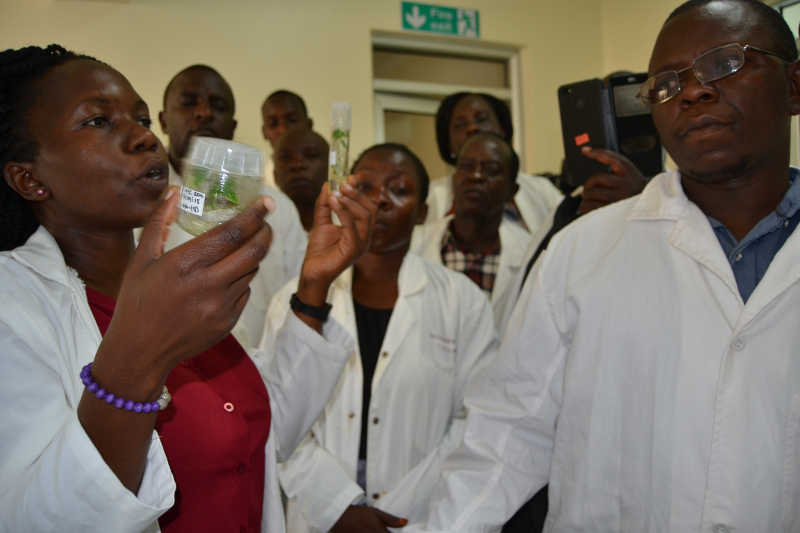
UNFFE members listen to a NARO research on how Genetic Modification is done
While the two institutions; NARO and UNFFE operate under different legal environments, with NARO as a public entity and UNFFE a member-based association, the fact that both pursue almost similar goals of improving the welfare of farmers, means that the MOU is even long-over due.
The timing of the marriage is also very critical. The government recently expanded the mandate of the research body to include seed distribution and marketing to farmers and other agro-input dealers.
Arising from NARO’s expanded mandate in favour of seed distribution, UNFFE’s proposal to work with the research body on seed multiplication and distribution has far reaching implications.
As Peter Wamboga-Mugirya, the Communications Director at SCIFODE observed, the imminent UNFFE-NARO alliance will trigger panic in the multi-billion private seed industry. He welcomed NARO’s new role by observing that the move would go a long way in curbing the problem of fake seed that contributed to a loss of confidence among farmers in the improved varieties.
He also argued that for many years, NARO has suffered bad reputation of not having someone to explain the benefits of its various technologies. And as Dr. Alicai observed, more than 80% of the cassava that is being grown in Uganda now are improved varieties from NARO, and yet not many people appreciate this.
Dr. Alicai expressed optimism that working with UNFFE would help to bridge the gap between farmers and researchers.
“If we work with UNFFE, we have higher chances of reaching more farmers through their wide network of members,”said Dr. Alicai.
Looked at from another perspective, the UNFFE-NARO alliance represents a powerful partnership because of the farmers’ body deep roots through the district farm institutes, most of which are being managed by the UNFFE members. The DFIs have historically played a key role among farmers as centres of the latest agricultural technologies.
The proposed alliance also comes at a crucial moment when Uganda is facing serious environmental and disease pressures affecting farmers. Numerous scientific studies and institutions have called for urgent measures to modernise agriculture as a pre-condition for industrial development.
As Dr. Kamuganga noted, once the alliance is realised, farmers leaders would lend their support to the voices of scientists for enactment of favourable policies and laws. In particular, he offered to lend support to researchers in their fervent hope of passing the Biosafety Act 2017 that has been contested since 2012.
He was supported by Mugoya Awali Ogonzaki, UNFFE Secretary who noted that the collaboration would form a powerful striking relationship that puts farmers at the centre of policies, as opposed to the interests of other players such as Non-Governmental Organisations.
Besides the need to increase food productivity to support the rapidly growing population on the continent, Agriculture needs to modernise in order to provide raw materials for industries, which would in turn create jobs for the continents largely young population.
If realised, UNFFE-NARO alliance promises to introduce a power new dynamic in the agricultural sector that will likely get a bigger voice not only in policy formulation but also in resource allocation towards the most important sector in Uganda’s economy.
Comments




